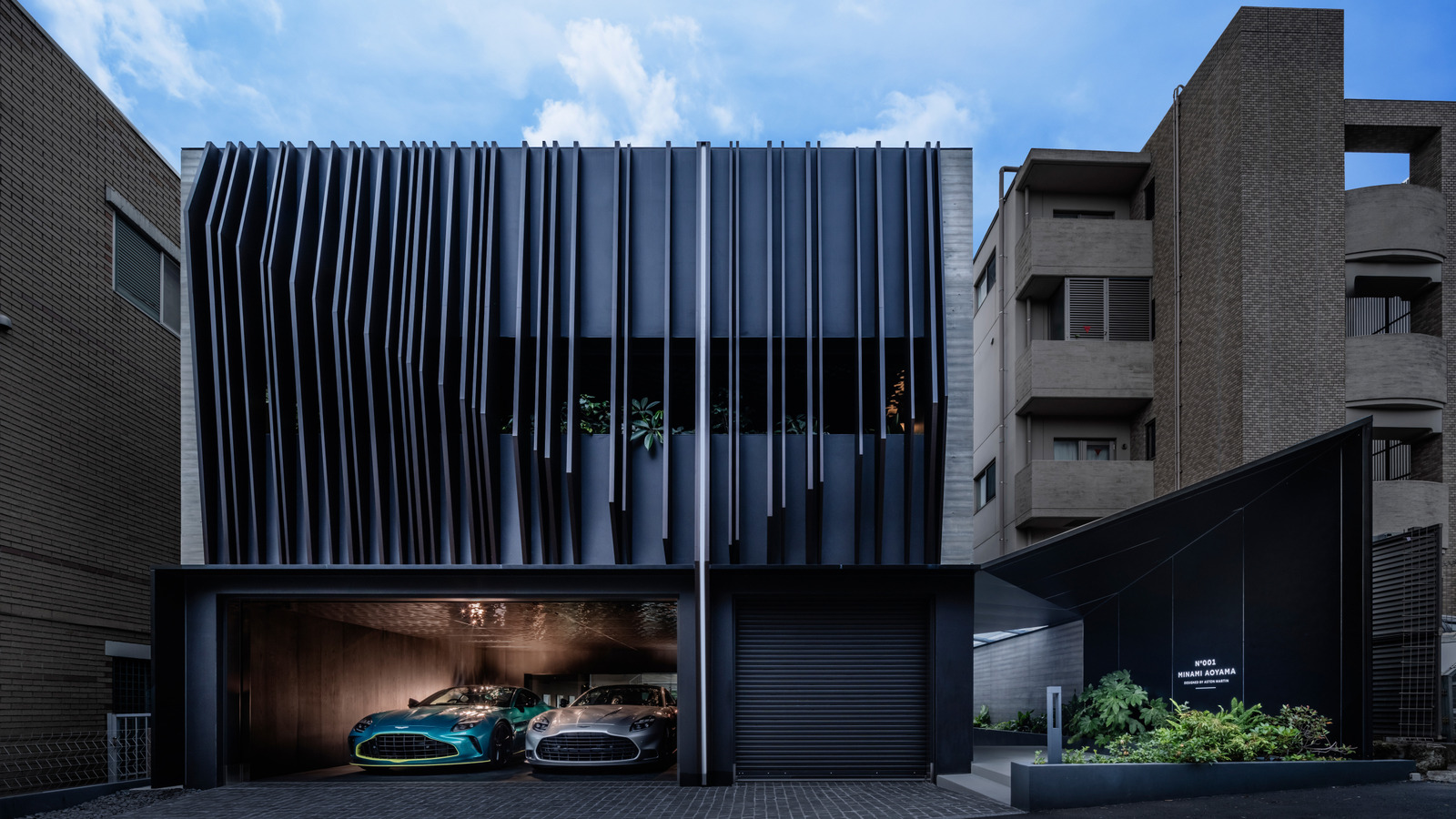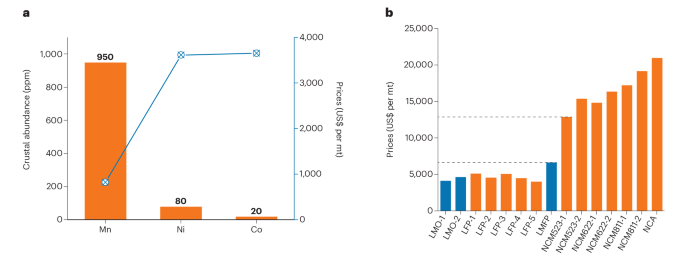The Condo Conundrum: Buying vs. Renting – A Guide to Making the Right Choice
Should you buy or rent a condo? Our guide explores the pros and cons, financial considerations, and factors to consider in any city The post The Condo Conundrum: Buying vs. Renting – A Guide to Making the Right Choice appeared first on Redfin | Real Estate Tips for Home Buying, Selling & More.


When it comes to finding a place to live, one of the biggest decisions you’ll have to make is buying vs renting a condo. This decision is particularly important depending on where you move. For example, if you’re renting a condo in Charlotte, NC, buying a condo in Colorado Springs, CO, or upgrading from renting an apartment in Jacksonville, FL, the housing market can be competitive, and prices of condos can vary greatly, so renting may be a better option.
In this article, we’ll explore the advantages and disadvantages of buying vs. renting a condo, as well as the financial considerations you should account for when making your decision. Whether you’re a first-time homebuyer or a long-time renter, this guide will help you weigh your options and make an informed decision about your next home.

Advantages of buying a condo
If you’re considering buying a condo, there are several advantages to keep in mind.
Building equity in your property
With each mortgage payment you make, you’ll be paying down the principal and increasing the value of your investment. Over time, this can result in significant wealth building and financial stability. “Buying a condo lets you build equity, enjoy tax benefits, and lock in stable payments. It’s a smart long-term move—especially in Los Angeles, where property values tend to rise steadily,” say Shelhee Gal & David Elan of Uniquely Real Estate.
As Kina De Santis, founder of Reframe, a real estate service in California says, “It’s important to start somewhere and build equity. Condos are easier to maintain than a single-family residence – the perfect starter property.”
Entry to property ownership
Condos are often more affordable than single-family homes, making them an attractive option for first-time buyers. “Condos typically require less maintenance — owners can lock the door and leave without worrying about yard work or exterior upkeep,” says Alicia Terry, a Washington state real estate agent. “Many condos are located in vibrant, walkable neighborhoods, especially in cities like Seattle, where living downtown means you can access restaurants, shops, and public transit without needing a car.”
Appreciation
While there are no guarantees, real estate has historically appreciated in value over the long term, which means your property could be worth more in the future than it is today. “If you plan to stay put for at least two years in a growing area, buying a condo can be a smart wealth move,” says Jeremy Grant, Founder & CEO of Knocked-Up Money, a personal finance blog for parents and parents-to-be. “Not only can you build equity, but you may also be able to pocket up to $250K in capital gains tax-free when you sell—$500K if you’re married. Renting won’t get you that kind of upside.”
Customization
When you own a condo, you can customize your living space to your liking. “You have the ability to make it your own through personal design choices such as painting, flooring choices etc.,” says Brad S. Golik of LUXE Forbes Global Properties and Luxury Condos of Portland. “Want to add a beautiful island in the kitchen? No problem!” You can paint the walls, renovate the kitchen, or install new flooring without having to worry about a landlord’s approval. This freedom can be especially appealing for those who want to make their living space their own.
Tax benefits
You may be able to deduct your mortgage interest and property taxes from your federal income taxes, which can result in significant savings over time. Be sure to consult with a tax professional to understand your specific tax situation.
Strong community
“A strong sense of community can form, especially in buildings with high owner-occupancy, shared amenities, and active HOA involvement,” shares Coty Thurman of Living Room Property Management. Buying helps you to invest in the community around you.
Lisa Zahner, a San Francisco real estate agent, says, “Buying helps you to build long-term financial and generational equity, and feel like you’ve got real ‘ownership’ in your community – because you do! There’s a psychological hold on digging into one’s neighborhood or city, and helping to make a difference.”
Voice in building decisions
“Buying a condo gives you a voice in the community. As an owner, you can vote on HOA matters, serve on the board, and help shape decisions that affect property value and quality of life — plus, you build equity over time,” the team at Keybox, a boutique property management and leasing firm specializing in homes, condos, and small apartment buildings across Santa Monica and West Los Angeles.
Disadvantages of buying a condo
While there are several advantages to buying a condo, there are also some disadvantages to consider.
Cost of ownership
In addition to the mortgage payment, you’ll also be responsible for property taxes, maintenance fees, and possibly HOA fees. These costs can add up quickly and may not be feasible for everyone. “You’ll be paying HOA dues that will never go away, nor most likely not go down,” says Michael W. Robertson, a San Francisco Bay real estate agent.
Higher upfront costs
When purchasing a condo, you have to have enough money to cover the costs of securing property. “Buying a condo requires a larger upfront investment and ongoing responsibilities, but it’s a smart step toward long-term financial stability,” says Christine Binge of Christine Binge Homes. The team at Luxury Apartments LIC adds, “Buying a condo requires a large down payment and expensive closing costs.”
Slower appreciation
A condo might not gain as much value as a single-family home. “Since 2012, the average single-family home has appreciated by 69%, while the average condo has only appreciated 27%,” says G. Brian Davis, co-founder of a passive real estate investment club at SparkRental.com.
Potential loss of value
Housing markets can be unpredictable, and if you buy at the wrong time or in the wrong location, you could end up with a property that loses value instead of appreciating. “Real estate has investment risk – just like any other asset – while property prices tend to rise over time, there will be dips in your property’s value,” says Kristen Shaker, a New York real estate agent. “If you have a sudden change in life circumstances, you may need to sell at a loss.” Additionally, selling a condo can be more challenging than selling a single-family home, which could make it more difficult to recoup your investment if you need to sell quickly.
Values can be unpredictable
“Condo values can be influenced by factors outside your control — like the financial health of the HOA, property management quality, and the condition of shared amenities,” says Coty Thurman of Living Room Property Management.
Loss of flexibility
If you want to move to a different location, it may be more difficult to sell your condo than it would be to end a lease on a rental property. Additionally, if you want to make changes to the exterior of the building or the common areas, you may need to get approval from the condo association, which could limit your ability to customize your living space.
Unexpected expenses
If a major repair is needed in the building, such as a new roof or plumbing repair, all owners may be responsible for a portion of the cost. This can result in unexpected expenses that can be difficult to budget for. “You have to be on top of building HOA and maintenance fees that may be out of your control,” says Mohammed M. Rahman of Closed By Mo, a real estate agent in New York City. “For example, maybe the building board votes to upgrade to a newer parking garage system, and so your HOA payment goes up.”

Advantages of renting a condo
Renting a condo also has its own set of advantages, including:
Flexibility
Renting allows you to move more easily than owning a property, which can be especially beneficial for those who may need to move frequently due to work or personal reasons. “A benefit of renting a condo would be the flexibility of a short-term commitment. It’s great for those who are in a city temporarily, or want to try living in a new place without committing,” says Elise Loschiavo of Vitalius Real Estate Group based in Portland, ME. Additionally, renting can provide greater housing stability, as you don’t have to worry about the financial risks and responsibilities of owning a property. “Renting an apartment or condo provides timing flexibility for residents; it’s easy to stop and start a lease without the permanent financial investment of buying,” says Josh Daniels of The Steward, a for-rent multifamily community in Tigard, OR.
Try out a neighborhood
With the flexibility of renting, you can dip your toe into locations around town before settling down. “Renting is a great option for people who aren’t sure if they’re going to like a city or a neighborhood,” says Kristen Shaker, a New York real estate agent.
Lower upfront costs
Unlike buying a condo, which typically requires a down payment and other upfront costs, renting typically requires only a security deposit and the first month’s rent. This can make it easier to move into a new property and can be especially beneficial for those who are just starting out or are on a tight budget. “Higher rates since 2022 have narrowed the gap, making renting equally or even more affordable in some cases. It’s a personal calculation every buyer has to make for themselves,” says Robyn Kaufman of SF High Rises.
Lower maintenance costs
While you may still be responsible for minor repairs and upkeep, major repairs and maintenance are typically the responsibility of the landlord or property owner. “Renting a condo gives you the convenience of maintenance-free living and access to amenities — without the financial responsibility of repairs or long-term commitment,” says Sapan Patel of Patel Home Finance, a mortgage broker in New Jersey.
Amenities and benefits
Enjoy the amenities and benefits of condo living without the long-term commitment. “You can enjoy amenities like pools or gyms without the requirement to personally maintain them,” shares Coty Thurman of Living Room Property Management. Many condo buildings offer amenities such as a pool, gym, or common areas, which can be enjoyed by renters just as much as owners.
Take advantage of new renter discounts
“When renting a condo, you can constantly move to a newer building offering better incentives to ensure you’re always in a new apartment and paying the lowest rates possible by taking advantage of offers new buildings typically provide when first renting,” says William Mingione, founder of Slaterock Automation, an AI-driven digital marketing service for small and medium businesses.
Disadvantages of renting a condo
While there are several advantages to renting a condo, there are also some potential disadvantages to keep in mind.
Not able to build equity
Unlike owning a property, renting doesn’t provide the opportunity to build equity or increase your net worth over time.
Inability to customize your living space
While you may be able to make minor changes, such as hanging pictures or changing the curtains, major renovations or changes to the property are typically not allowed without the landlord’s approval. This can limit your ability to truly make the space your own.
However, Jason Marcordes from Landmark Property Management highlights the power of small, budget-friendly upgrades, “One of the simplest ways to refresh your home is with a fresh coat of paint. This is the most commonly used upgrade as it works wonders.” As long as the property is returned to the state it was when you began renting it, you may still be able to make minor customizations while renting.
Rent increases
While some landlords may offer long-term leases with stable rent prices, others may raise the rent from year to year. “Renters can be subject to rent increases, especially in competitive housing markets or buildings without rent control,” shares Pavan Ishwar Khoobchandani of Khoobchandani Law, a general counsel in the DC area. “Even if a renter is happy with their unit and community, the landlord may raise the rent at lease renewal — sometimes significantly — making it harder to budget or forcing the tenant to move.”
Lack of stability
Renting a condo can come with a lack of stability in housing costs. Unlike owning a property, where you typically have a fixed mortgage payment, renting costs can fluctuate based on market conditions and the landlord’s decisions. This can make it more difficult to plan for long-term housing costs and could result in unexpected financial stress.
Lack of say in community decisions
With renting, you don’t have as strong of a voice in changes that take place in the building. “You’re stuck abiding by the rules of the association,” says Kina De Santis, founder of Reframe, a real estate service in California.

Financial considerations
When deciding whether to buy or rent a condo, it’s important to consider several financial factors. One of the most important factors is your budget. While owning a property can provide long-term financial benefits, it can also be more expensive upfront than renting. Be sure to calculate all of the costs associated with owning a property, such as the mortgage payment, property taxes, maintenance fees, and HOA fees, to determine if it’s feasible for your budget.
Another financial factor to consider is your long-term goals. If you plan to live in the same location for several years, owning a property may provide a more stable and long-term housing solution. However, if you may need to move in the near future, renting may be a better option.
Additionally, it’s important to consider the current state of the real estate market in your area. If property values are high and there is a lot of competition, buying may not be feasible or financially advantageous. On the other hand, if the market is stable and property values are likely to appreciate over time, owning a property may be a smart investment.
Depending on what loan types are available, there may be flexibility with purchasing a condo. “If you’ll only stay a few years, adjustable-rate loans let you build equity with lower monthly costs, providing flexibility without missing out on the personal and financial benefits of ownership,” says Robyn Kaufman of SF High Rises.
Finally, be sure to factor in any tax benefits or incentives that may be available for owning a property. While these benefits may not be enough to offset the cost of ownership, they can provide significant financial savings over time. For Bernie Sauer, owner and president of BCS Builders, the choice comes down to a few factors.
“The choice between renting and buying a condo ultimately comes down to financial readiness, long-term goals, and lifestyle needs. If you have a steady income, strong credit, and savings for a down payment, buying a condo is often the smarter financial move—it allows you to build equity with every mortgage payment, but you also benefit from tax advantages and avoid unpredictable rent increases.”
On the other hand, Jamie Pullman of Downtown Condo Guys sees the benefit of renting over buying in today’s market.
“From a purely financial standpoint — especially in today’s high interest rate and elevated market value environment — renting almost always makes more sense (& cents)! It offers greater flexibility, lower upfront and overall costs, and ease of maintenance-free living.”
Buying vs renting a condo: Bottom line
The decision to buy or rent a condo is a complex one that depends on many individual factors. While owning a condo can provide the opportunity to build equity, appreciate in value, and customize your living space, it also comes with higher upfront costs and the potential for unexpected expenses. On the other hand, renting a condo can provide greater flexibility, lower upfront costs, and lower maintenance fees, but may lack the stability and long-term financial benefits of owning a property.
When making your decision, it’s important to consider your personal circumstances, financial goals, and the current state of the real estate market in your area. Ultimately, the right choice depends on your individual needs and goals. Whether you choose to buy or rent a condo, be sure to do your research and make a decision that aligns with your long-term financial and personal goals.
The post The Condo Conundrum: Buying vs. Renting – A Guide to Making the Right Choice appeared first on Redfin | Real Estate Tips for Home Buying, Selling & More.


















































































































































